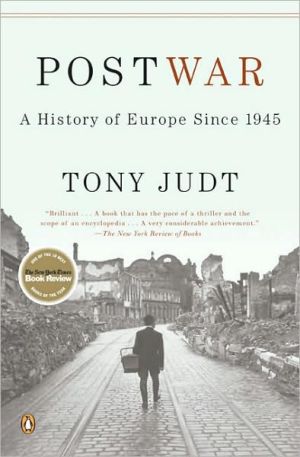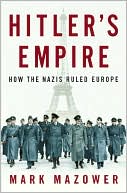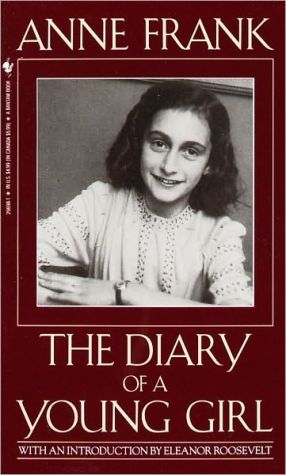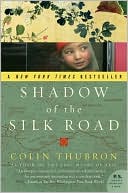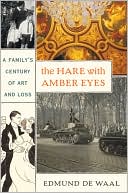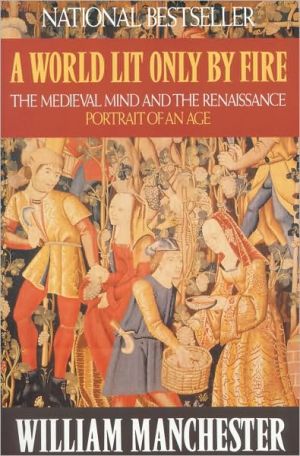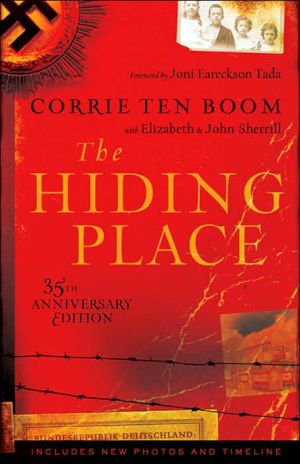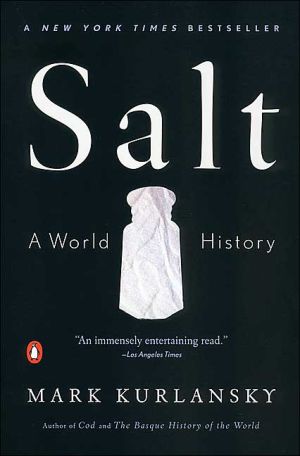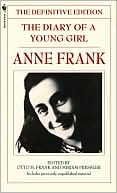Postwar: A History of Europe since 1945
Named one of the Ten Best Books of the Year by the New York Times Book Review\ Almost a decade in the making , this much-anticipated grand history of postwar Europe from one of the world's most esteemed historians and intellectuals is a singular achievement. Postwar is the first modern history that covers all of Europe, both east and west, drawing on research in six languages to sweep readers through thirty-four nations and sixty years of political and cultural change-all in one integrated,...
Search in google:
Named one of the Ten Best Books of the Year by the New York Times Book Review Almost a decade in the making , this much-anticipated grand history of postwar Europe from one of the world’s most esteemed historians and intellectuals is a singular achievement. Postwar is the first modern history that covers all of Europe, both east and west, drawing on research in six languages to sweep readers through thirty-four nations and sixty years of political and cultural change—all in one integrated, enthralling narrative. Both intellectually ambitious and compelling to read, thrilling in its scope and delightful in its small details, Postwar is a rare joy. * A Time and San Francisco Chronicle Best Book of the Year* Maps, photos, and cartoons throughout The New York Times - Anthony Gottlieb As Judt movingly draws it, the picture of Europe at the end of World War II is pitiful almost beyond bearing. Some 36.5 million Europeans are reckoned to have died between 1939 and 1945 because of the war. Tens of millions more were uprooted by Hitler and Stalin. In the immediate aftermath of Germany's defeat, the continent was scarred with violent retribution, purges and outbreaks of what in some places - like Greece and Yugoslavia - amounted to civil war. As Judt notes, the war in Europe did not really end in 1945 at all. Neither did the persecution of Jews end with the closing of the death camps: well over a thousand Jews were killed in Polish pogroms after the liberation of Poland.
Preface & Acknowledgements Introduction\ Part One: Post-War: 1945-1953\ I. The Legacy of War II. Retribution III. The Rehabilitation of Europe IV. The Impossible Settlement V. The Coming of the Cold War VI. Into the Whirlwind VII. Culture Wars Coda. The End of Old Europe\ Part Two: Prosperity and Its Discontents: 1953-1971\ VIII. The Politics of Stability IX. Lost Illusions X. The Age of Affluence XI. The Social Democratic Hour XII. The Spectre of Revolution XIII. The End of the Affair\ Part Three: Recessional: 1971-1989\ XIV. Diminished Expectations XV. Politics in a New Key XVI. A Time of Transition XVII. The New Realism XVIII. The Power of the Powerless XIX. The End of the Old Order\ Part Four: After the Fall: 1989-2005\ XX. A Fissile Continent XXI. The Reckoning XXII. The Old Europe—:and the New XXIII. The Varieties of Europe XXIV. Europe as a Way of Life\ Epilogue\ From the House of the Dead: An Essay on Modern European Memory\ Index
\ David P. CalleoJudt, a New York University historian, has an admirable range of interests and competence. He is, for a start, a fine social historian; he has thought seriously about Europe's demographic patterns and their likely economic and social consequences; he clearly loves and studies the movies and popular music; and he is very much a historian of ideas. Although he regularly professes not to take the world of Parisian intellectuals very seriously, he himself seems an splendid product of that milieu, as might be expected from a graduate of France's cole Normale Suprieure.\ — The Washington Post\ \ \ \ \ Anthony GottliebAs Judt movingly draws it, the picture of Europe at the end of World War II is pitiful almost beyond bearing. Some 36.5 million Europeans are reckoned to have died between 1939 and 1945 because of the war. Tens of millions more were uprooted by Hitler and Stalin. In the immediate aftermath of Germany's defeat, the continent was scarred with violent retribution, purges and outbreaks of what in some places - like Greece and Yugoslavia - amounted to civil war. As Judt notes, the war in Europe did not really end in 1945 at all. Neither did the persecution of Jews end with the closing of the death camps: well over a thousand Jews were killed in Polish pogroms after the liberation of Poland.\ — The New York Times\ \ \ Publishers WeeklyThis is the best history we have of Europe in the postwar period and not likely to be surpassed for many years. Judt, director of New York University's Remarque Institute, is an academic historian of repute and, more recently, a keen observer of European affairs whose powerfully written articles have appeared in the New York Times, the New York Review of Books and elsewhere. Here he combines deep knowledge with a sharply honed style and an eye for the expressive detail. Postwar is a hefty volume, and there are places where the details might overwhelm some readers. But the reward is always there: after pages on cabinet shuffles in some small country, or endless diplomatic negotiations concerning the fate of Germany or moves toward the European Union, the reader is snapped back to attention by insightful analysis and excellent writing. Judt shows that the dire human and economic costs of WWII shadowed Europe for a very long time afterward. Europeans and Americans recall the economic miracle, but it didn't really transform people's lives until the late 1950s, when a new, more individualized, consumer-oriented society began to appear in the West. But Postwar is not just a history of Western Europe. One of its great virtues is that it fully integrates the history of Eastern and Western Europe, and covers the small countries as well as the large and powerful ones. Judt is judicious, even a bit uncritical, in his appraisal of American involvement in Europe in the early postwar years, and he's scathing about Western intellectuals' accommodation to communism. His book focuses on cultural and intellectual life rather than the social experiences of factory workers or peasants, but it would probably be impossible to encompass all of it in one volume. Overall, this is history writing at its very best. Agent, Andrew Wylie. (On sale Oct. 10) Copyright 2005 Reed Business Information.\ \ \ \ \ Library JournalJudt (European studies, NYU; The Burden of Responsibility), a prolific and respected historian of recent Europe, has written a massive but nonetheless lively and thoughtful historical overview of today's Europe from the end of World War II through the economic, social, cultural, and political changes and continuities of the last 60 years. He includes the entire European continent in his consideration, and for American readers his view through this lens may serve to render familiar events differently, adding new dimensions to the America-focused narratives of the postwar years. From its opening chapter, a moving account of the devastation of Europe at the end of World War II, through the thoughtful analysis of the patterns and temper of the "The Old Europe and the New," which provides the closing chapter, this book gives a well-rounded picture of the trends, events, and people that have made contemporary Europe. In less capable hands, it would have been easy for such a huge and all-encompassing work to become a boring slog through names, places, and events. But Judt sees the bigger picture and conveys it ably, making the book lively enough to be read from cover to cover. Not all historians will agree with every one of Judt's assertions, but this book is certain to be a major addition to postwar European studies. For all collections. [See Prepub Alert, LJ 6/15/05; for an interview with Judt, see "Fall Editor's Picks," LJ 9/1/05.-Ed.]-Barbara Walden, Univ. of Wisconsin, Madison Copyright 2005 Reed Business Information.\ \
